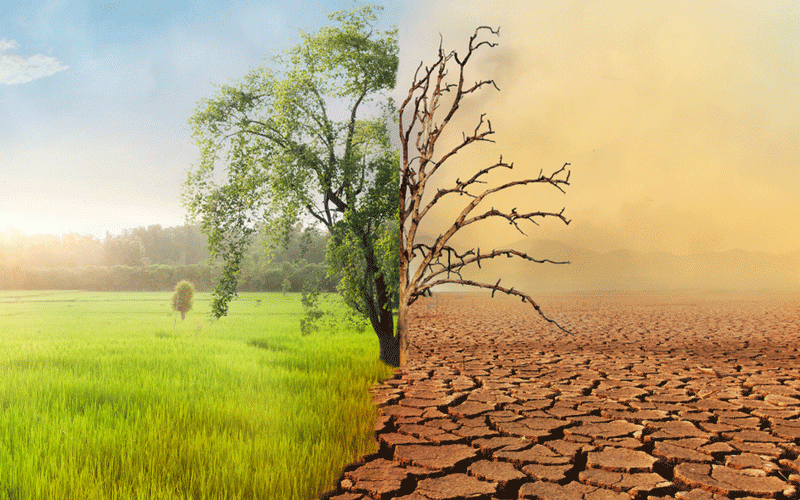
PRISONS or correctional centres are not only a criminals’ paradise but a hub of bustling activities involving almost every vocation.
While these career-driven communities of practices are specialised and contextualised, the only discipline that cuts across all learning areas is climate change. That is why climate change is described as interdisciplinary, crosscutting and multi-sectoral. It is a programme that breathes life in every sector hence every prisoner needs to benefit from climate literacy for environmental justice when they are out of correctional centres.
Regenerative community pathways as part of social and community service, as extensions to correctional services include education and awareness raising on communities to prepare safe returns for their relatives from the prisons. Released inmates need love and appreciation, not rebuke and labelling. The first point of call to successful integration of ex-inmates is the home and the community. Unwarranted linguistic tools like “jail-bird”, “ex-convict”, “jail-breaker” and “back from college” among others, do not save any integrative purpose at all.
Inmates are humans and they always carry the baggage of mental health issues when they become hosts at various correctional centres countrywide. Prisoners can be engaged in pilot climate change programmes designed to prepare them for sustainable lives after jail terms. This initiative does not mean that courses that have become the backbone of training in prisons are no longer important or should be abandoned. Climate change as a crosscutting issue can be in the mould of communication skills in universities where it is a must for all faculties to have students learn communication skills as a university wide course.
Although prisoners are classified as non-violent, violent and dangerous criminals, all need rehabilitation hence climate knowledge and information have no bounce. Inmates need this vital lifelong component so that when they serve their correctional terms, they would know how to deal with an environment affected by negative impacts of climate change. They would require comprehensive climate knowledge and information to rebuild and resurrect their shattered lives. Climate literacy gained in the prison would enable released prisoners to participate effectively in climate action programmes.
A daily programme or lesson on climate change just like a daily prayer would situate the environment at the centre of their rehabilitation. Climate change adaptation strategies include sustainable agriculture, gardening or horticulture, beekeeping, fish farming, forest regeneration, nutritional gardens, small-livestock rearing, water-harvesting, land reclamation, small-scale water reservoirs construction, conservation agriculture, climate advocacy groups and coalitions and micro-lending, among others.
Of course, most of these programmes are very much in the public domain and people are already participating in them but without enough knowledge and information on how best they can save the environment as nature-based solutions. Climate action strategies are essential for inmates in several ways, chief among them, putting the environment at the heart of sustainable development, new knowledge economy and life-long skills, resilient building, knowledge sharing and behaviour modifications.
It would be also essential for inmates to reconnect with nature, culture, traditional beliefs, new ways of living and fighting stigma while gradually reintegrating into a complex society driven by high cultural values, animosity and suspicions. This is also important in preparing inmates for a sustainable future without jails, without participating in unwarranted behaviours like drug and substance abuse, prostitution, theft, fighting, murder, rape cases and environmental crimes, among others.
- Zinwa blames water woes on council
- Zinwa blames water woes on council
- Over 400 nabbed for environmental violations
- Over 400 nabbed for environmental violations
Keep Reading
It is also significant that inmates, upon their release from prison, participate in enough regenerative justice so that the ex-inmates know where they are coming from and where they are going because this is a process not an event. If situations or policies permit, some follow ups are required from prison officials to find out how the ex-inmates would be integrating. Regenerative justice also contributes to environmental regeneration which contributes to both environmental healing and mental recovery.
Ex-inmates need enough time to repair their psycho-social harm while interacting with nature regenerative projects. When they are back and want to visit places like drinking spots, that is when they would be called names like “jail bird” or “jail-breaker”. Contrary to the above, if they are busy doing life-changing projects, that is when people can come in good faith and want to learn.
The country has an open prison system that enables prisoners to have more freedom than in other prisons and move around while the most important goal is to redeem and reform. In communities, climate change is impacting lives, environment, mental health and livelihoods, leading to people failing to cope thereby committing crimes due to the lack of guidance and knowledge of climate change. There are numerous climate-induced health risks impacting on societies, leading some to commit crimes and landing themselves in jail.
Societies need mental cleansing so that they have a better concept of the prison not as a jail but a correctional centre. Correctional centres also need to reduce overcrowding, health risks and safety issues, otherwise the learning initiatives being suggested would fail because of unstable mental realities. The concept of correction should be both in scope, sense, context and practice otherwise it will remain a recycling of the old notorious systems.
Prisons need continuous reviewing of their rehabilitative programmes so that they are current and move with time hence are relevant to what the ex-inmates would come across when they are released. They will be confronted with degraded and deforested landscapes, water scarcity, an environment affected by extreme heat and sunbaked soils, everything enough to make life meaningless again. That is when they would need to make use of the climate rehabilitative skills they learnt in prison, to change their own situations and those of others and improve the environment and their livelihood options.











